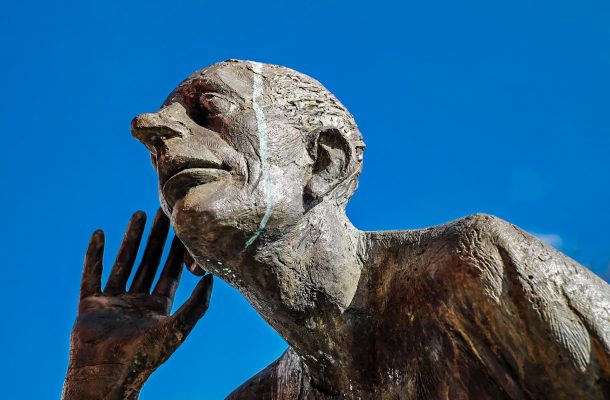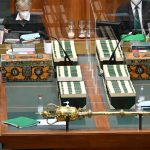Tackling the strategic neglect of our Pacific island neighbours

“Our partners have fallen short of acknowledging Pacific leadership’, in the opinion of Samoan Prime Minister Tuilaepa Sailele voiced at his address of the Lowy Institute in Sydney. “Some might say there is a patronizing nuance, believing Pacific nations did not know what they were doing, …. One has the tendency to be bemused by the fact that the reaction is an attempt to hide what we see as strategic neglect.”
He is referring to the ‘strategic neglect’ of condescending one-sided policies and the lack of effective commitment by the Coalition government towards climate change. “We all know the problem, we all know the solutions, and all that is left would be some political courage, some political guts, to tell people of your country there is a certainty of disaster”.
The climate change dialogue is one of common challenges, in that no country is an island on its own; Australia is intrinsically interconnected through the seas and the Earth’s prevailing climatic conditions.
The Samoan PM’s address came at a time when Coalition MPs continue to press for abandoning the Paris Agreement. He didn’t hold back when he said: “So any leader of any country who believes that there is no climate change, I think he ought to be taken to mental confinement. He is utterly stupid. And I say the same thing to any leader here.”
In a region where geostrategic competition is creating great uncertainty, the bar needs to be set significant notches higher in terms of how to address climate change threats and negotiations with Pacific leaders, now and in future.
The Pacific region is significantly threatened by climate change; it is an existential threat to their people. Any partnership is a commitment to deepen people to people links. Long lasting personal connections, mutually beneficial relationships and a partnership between nations and peoples are all based on trust, and trust is not gained by unilateral actions and solutions, and it may take some time to establish.
Whilst governments play a central role in meeting the challenge of sustainable development, greater dialogue and long-term linkages, recognizing that leadership in the Pacific is manifested through both formal and informal institutions is to be encouraged. The link between human well-being (environmental, social, cultural and economic) and ecological processes continues to be overlooked in climate change mitigation.
Australia will provide an estimated $260 million next year to the Pacific through the Pacific Regional Program. If we are serious about partnership building with our Pacific neighbors, we urge all parties to move beyond rhetoric and initiate a process of ‘deep listening’ to the leaders, the communities, and the Indigenous elders of the Pacific Nations.
We propose that the format of this partnership is be approached in the following manner:
Processes of cross-cultural understanding – people to people
We suggest that the needs analysis and deep listening phase of this process is established through visits to each the islands to meet with community leaders, women and elders by a delegation, accompanied by an Indigenous elder of the area and/or a neighboring region.
There is a need to consider local context and to recognize social and cultural knowledge when dispensing aid. The Pacific region has a cultural heritage which is over 50,000 years old, and the Indigenous peoples of the nations in this ‘sea of islands’ are deeply connected and stand in solidarity to one another.
Different cultural ‘understandings’ often do not translate well; and this is not conducive to mutual understanding. For example, the intricate interrelationship between the land, the sea, and the natural environment perceived by traditional and Indigenous peoples cannot be explained readily in commercial or policy terms. It needs to include spiritual perspectives towards the environment and climate change which are fundamental to Oceanic peoples.
The transfer of information and understanding across knowledge systems is fundamental to the development of a partnership.
With Australia providing $18 million under the Pacific Women Shaping Pacific Development, it is important to foster women’s economic empowerment and reduce violence against women in the Pacific.
We recommend that all programs prioritize indigenous knowledge and engage women as agents of change. The described process will assist in identifying women and youths as future leaders of the region and to promote the role of women in the Pacific.
As a second step in the process of cross-cultural understanding, dialogue circles are an effective way of bridging cultural complexities and giving voice to disparate understandings of an issue. They are an elegant way of dealing with differing assumptions and opinions.
Defending and challenging assumptions often can give rise to discussions with elevated emotional charges. David Bohm, the eminent physicist, recalls that Albert Einstein and Niels Bohr developed such a dislike of each other because each believed they held the unique truth as they defended rigid positions. In this way, they remained separate and the fertile ground for dialogue and scientific interchange was not established.
Dialogue circles deal with such hard stances in creating a space in which listening to all opinions is promoted. We recommend that dialogue circles are used as a preferred process for networking and dialogue meetings in all programs.
We recommend that there will be always with two dialogue leaders or facilitators present: one Indigenous and one non-Indigenous, to assist in the language/values/meaning transfer. This is because an essential part of dialogue circles is that they reveal assumptions and cultural values. It is not necessary to convince one another.
During the process, each will see the other side’s position which will allow the two polarized groups to talk to each other, explore assumptions, perspectives and beliefs and allow the space for fresh and original insights to emerge. It will open the doors for an effective decision making process.
The Samoan PM has identified a patronizing ‘strategic neglect’ by Australia towards our Pacific neighbors. By instituting these proposed processes for cross-cultural understanding, it would flag a move away from Australia’s propensity for boilerplate commitments supporting ‘stability and prosperity’.
Mr Sailele is calling for a step change by the Australian government towards Pacific leaders; to listen to what they need and for respect in negotiations with them. It’s time to change the way we are hearing, and to start listening.
Eva Willmann de Donlea is the Executive Director of 1Earth Institute Inc., an American organisation which works to enable cross-cultural dialogue and collaboration around the world.













